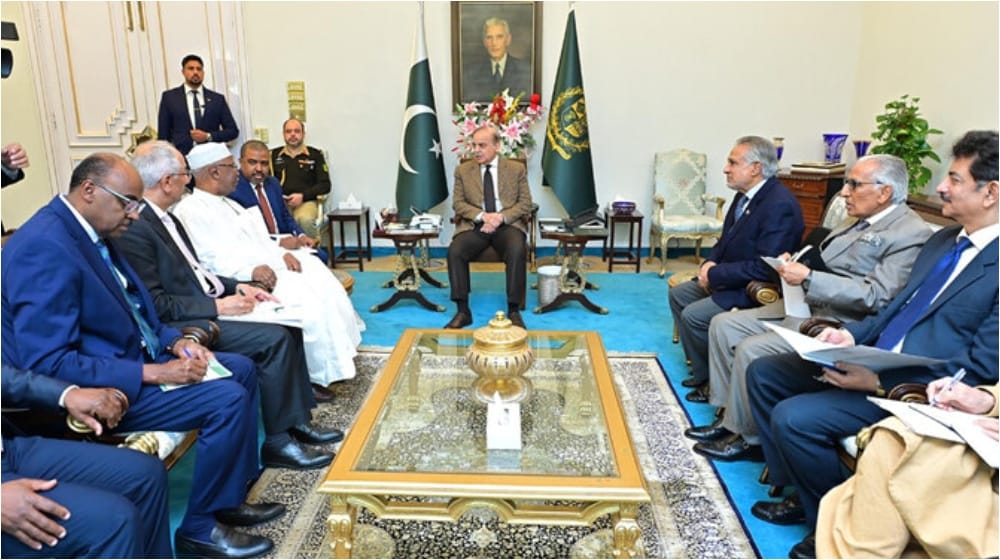In a groundbreaking move to address one of the most pressing issues of our time, Pakistan hosted a global conference focused on the restrictions surrounding female education. Held in Islamabad, this event brought together thought leaders, policymakers, educationists, and activists from around the world to discuss the barriers preventing girls and women from accessing education, a fundamental right enshrined in international charters and treaties.
Context and Importance of the Conference

Globally, over 129 million girls remain out of school due to various socio-economic, cultural, and political barriers, according to UNESCO. Pakistan itself grapples with significant gender disparities in education, with rural areas particularly affected by poverty, traditional norms, and a lack of infrastructure. Recognizing the urgent need to address these challenges, the Government of Pakistan partnered with UNESCO, UNICEF, and various non-governmental organizations to organize the conference.
The event aimed to:
- Highlight the global and regional challenges to female education.
- Share successful case studies where restrictions have been overcome.
- Develop actionable strategies to tackle gender-based educational inequalities.
Key Themes and Discussions
The conference featured an impressive lineup of speakers, including Nobel Laureate Malala Yousafzai, who shared her personal journey and ongoing advocacy for girls’ education. Other notable speakers included representatives from the United Nations, international NGOs, and local education experts.
Key themes discussed included:
- Cultural and Social Barriers: Cultural norms often restrict girls’ access to education. Participants discussed how early marriages, societal expectations, and patriarchal mindsets limit educational opportunities for girls, particularly in South Asia and sub-Saharan Africa.
- Economic Challenges: Poverty was identified as a significant barrier, with many families prioritizing boys’ education over girls due to limited resources. Innovative scholarship programs and financial incentives were proposed as potential solutions.
- Impact of Conflict and Displacement: In regions affected by conflict, such as Afghanistan and parts of the Middle East, schools are often targeted, and girls face heightened risks of violence. The conference emphasized the need for safe educational spaces and international support for conflict zones.
- Digital Divide: The pandemic highlighted the digital divide, with many girls unable to access online education. Speakers discussed leveraging technology to bridge gaps, particularly in remote areas.
Highlights of the Conference
- Policy Announcements: The Government of Pakistan unveiled a comprehensive policy framework to increase female enrollment in schools by 20% over the next five years. This includes building more girls-only schools, providing transport facilities, and training female teachers.
- International Collaboration: UNESCO announced a $50 million fund to support girls’ education initiatives in Pakistan and other developing countries.
- Success Stories: Case studies from Rwanda, Bangladesh, and Pakistan’s own KP province showcased how targeted interventions can transform lives.
Outcomes and Action Plan
The conference concluded with the adoption of the “Islamabad Declaration on Female Education,” which outlined a multi-faceted action plan:
- Increased Investment: Governments were urged to allocate at least 6% of GDP to education, with a focus on female education.
- Community Engagement: Local leaders and influencers were encouraged to advocate for girls’ education.
- Monitoring and Accountability: Regular progress reports and accountability measures were emphasized to ensure commitments are met.
Audience Engagement and Global Participation
The conference leveraged social media and live streaming to reach a global audience. Hashtags like #EducateHer and #GirlsDeserveEducation trended worldwide, drawing attention to the critical issues discussed.
Conclusion
By hosting this global conference, Pakistan has positioned itself as a leader in the fight for gender equality in education. The event not only highlighted the challenges but also paved the way for actionable solutions. With international support and local commitment, the dream of universal female education can become a reality, empowering millions of girls to transform their lives and communities.
References:
- UNESCO, “Global Education Monitoring Report,” 2023.
- UNICEF, “State of the World’s Children Report,” 2023.
- Malala Fund, “Barriers to Girls’ Education,” 2022.
Government of Pakistan, “National Education Policy,” 2024
